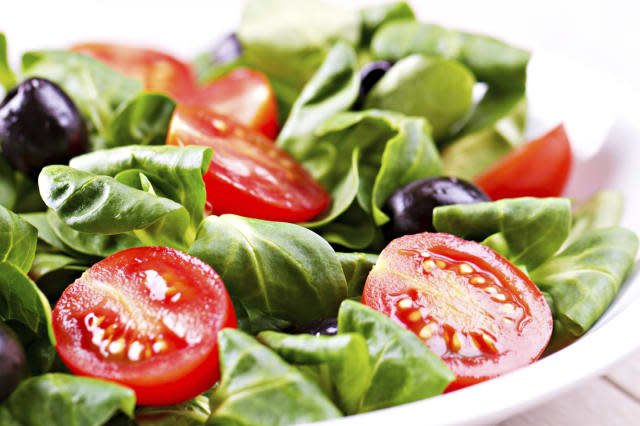Six ways to eat clean

Clean eating may help you lose weight, but it's not a diet as such. Instead, it's a commitment to eating natural, healthy foods. Whether you want to improve your nutrition or drop a few pounds, here are six ways to eat clean.
See also: Best low-calorie foods to fill you up
See also: Seven foods to ease the pain of arthritis
1. Avoid processed foods & opt for whole foods
The main purpose of clean eating is to ensure your diet is as natural as possible. So instead of eating highly processed foods - like crisps, biscuits, boxed cereals, microwave ready meals and jars of sauces - you choose fresh, whole foods. For instance, porridge made from plain oats rather than Crunchy Nut cornflakes, chicken breast and roasted vegetables rather than a microwave ready meal, and fresh strawberries instead of flavoured fruit yoghurt.
Many processed foods contain high levels of salt, sugar and fat – as well as various additives, flavourings and preservatives. Cooking from scratch takes effort (though if you cook in batches you'll save time) but you will know exactly what you're eating. It goes without saying to avoid adding salt you add to food - try flavouring with spices and herbs instead.
2. Opt for whole grains
The manufacturing process strips out the goodness from refined carbs, such as white rice, white bread and white pasta. Swap them for whole wheat bread and pasta and brown or wild rice and you will benefit from the extra nutrients. Instead of always having rice or pasta, try having your favourite meals with quinoa, cous cous or bulgur wheat.
3. Eat more fresh fruit and veg
Fresh fruit and vegetables should be at the top of your clean eating list. Frozen and canned fruit and veggies can contain as many nutrients as fresh – just check the label to ensure that extra sugar or salt hasn't been added. Instead of 'five a day,' aim to eat at least seven servings of fruit and vegetables. A 2014 study found that eating seven or more portions reduces the risks of death by cancer and heart disease by 25% and 31% respectively. The study, published in the Journal of Epidemiology & Community Health, found that vegetables had the strongest protective effect – so make sure you're eating plenty of greens.
4. Choose organic meat
The cleanest approach to protein is to get it from plant sources, but if you're going to eat meat and dairy, it's best to choose organic, grass-fed and free-range products. Most of us eat too much meat, so it makes sense to cut back on how often you have it (maybe two or three days a week) and use the money you save to buy better quality.
Some of the cheaper meat you find in store may come from animals that have been given growth hormones and antibiotics. A local farmer's market is a good place to buy organic meat.
5. Drink more water
Staying well hydrated will help to improve your digestion, so be sure to sip water throughout the day. There's little point eating clean if you're washing it down with gallons of coke or fruit juices (they may be natural but are still high in sugar). Opt for plain water rather than drinking squashes with artificial sweetener – if you need some flavouring, try infusing with a few slices of lemon or a sprig of mint.
6. Cut back on coffee and alcohol
Some clean eaters cut out alcohol and coffee entirely, while others limit how much they drink. As a general guide, experts recommend having not more than three to five cups of coffee a day, and no more than a single serving of alcohol a day for women, and two for men. Think a small glass of red wine with your evening meal.



